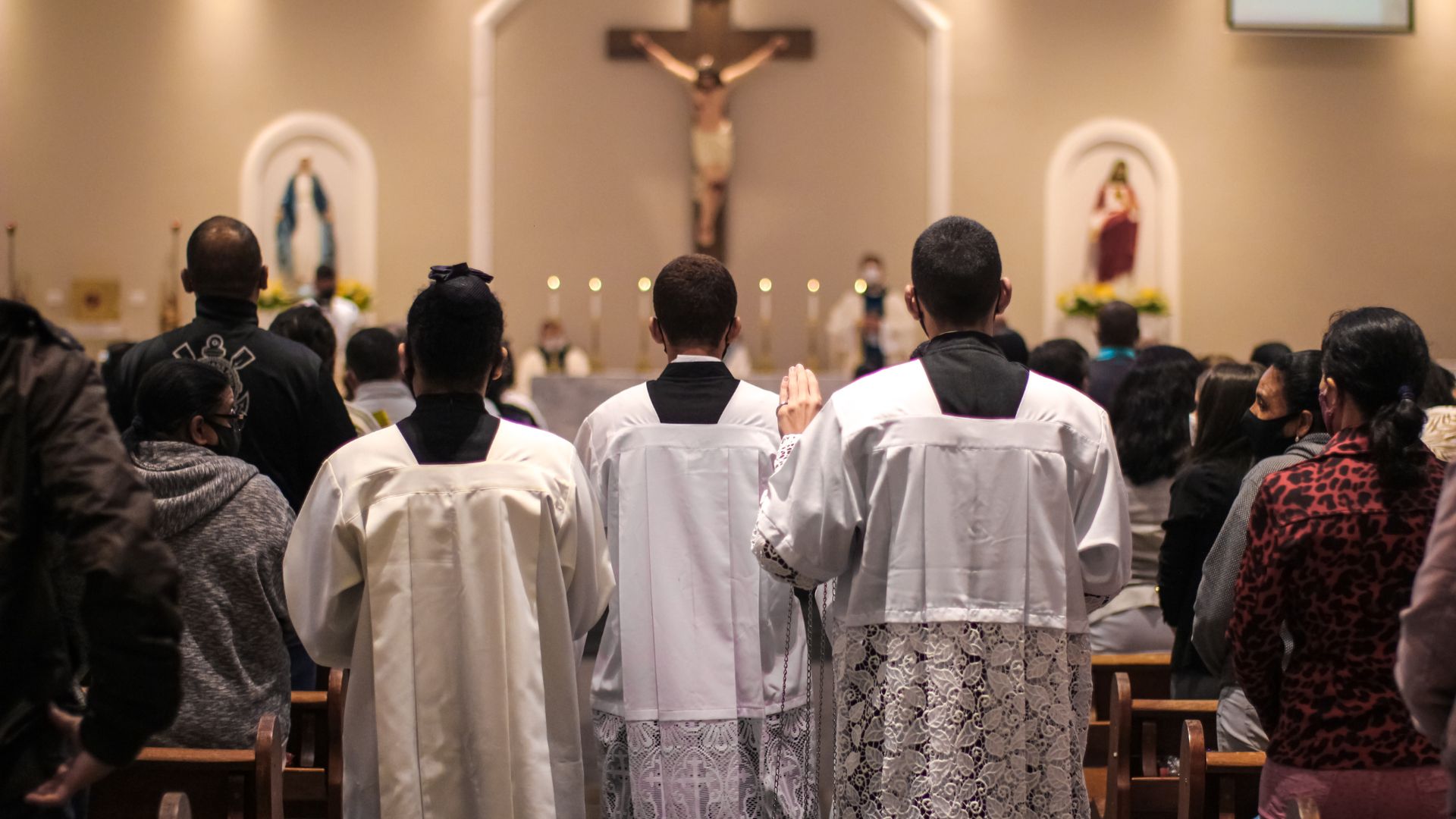Zechariah, a luminary among the Minor Prophets, voiced his revelations during the delicate post-exilic period when Israel was reassembling from Babylonian captivity.
His ministry, set against the backdrop of Jerusalem’s reconstruction, delivered a series of visions, stern warnings, and uplifting prophecies.
These messages offered guidance, correction, and hope, aiming to steer the nation toward spiritual renewal and divine favor.
Zechariah’s prophecies remain a cornerstone of biblical literature, echoing the enduring themes of repentance and redemption.
Zechariah in the Bible
The Bible is a treasure trove of remarkable characters, each with a unique role in God’s grand narrative.
Among these figures, Zechariah stands out as a prophet whose life and messages have left an indelible mark on the pages of sacred scripture.
In this in-depth exploration, we delve into the life, prophecies, and legacy of Zechariah, seeking to unravel the profound mysteries he holds.
The Life and Times of Zechariah
The Life and Times of Zechariah Zechariah emerged as a prophet during a pivotal time in Israel’s history. The nation was in the throes of rebuilding after the Babylonian exile, a period marked by a deep yearning for restoration both spiritually and physically.
Zechariah, whose name means “Yahweh remembers,” served as a prophetic voice, reminding the people that they were not forgotten by God. His background as a member of a priestly family gave him a unique standing, enabling him to bridge the gap between the religious and social spheres of Jewish life.
The geopolitical landscape of Zechariah’s time was dominated by the Persian Empire, under whose rule the Israelites were allowed to return to Jerusalem and rebuild the Temple.
This period, however, was fraught with challenges. The social conditions were characterized by economic hardship, internal disputes, and external opposition, which often hindered the reconstruction efforts.
The Eight Visions of Zechariah
The Eight Visions of Zechariah Zechariah’s prophecies are best known for the eight-night visions recorded in the first six chapters of the book bearing his name. Zechariah’s most famous vision, however, is the one that includes the high priest Joshua and the heavenly accuser Satan, illustrating God’s divine grace and forgiveness. Each vision is rich with symbolism and conveys messages pertinent to the situation in Israel.
The Horsemen: The opening vision describes horsemen among myrtle trees, symbolizing God’s watchfulness over the nations and His intent to bring peace to Jerusalem.
The Four Horns and the Four Craftsmen: This vision depicts the powers that scattered Israel and Judah, and the craftsmen who are appointed to terrify them, suggesting that the nations that oppressed Israel will be overthrown.
The Surveyor: A man with a measuring line appears, representing the future expansion and security of Jerusalem, reassuring the people that God’s protection would be like a wall of fire around them.
The Cleansing of Joshua the High Priest: Joshua, clad in filthy garments, stands before the angel of the Lord, symbolizing the nation’s sin and subsequent purification and restoration.
The Golden Lampstand and Two Olive Trees: This vision portrays a golden lampstand flanked by two olive trees, representing God’s Spirit and the leadership of Zerubbabel and Joshua in the rebuilding efforts.
The Flying Scroll: A large scroll flying through the air signifies the curse going out over the land against thieves and perjurers, emphasizing the importance of moral integrity.
The Woman in the Basket: This vision of a woman in an ephah basket being carried to Babylon speaks to the removal of wickedness from the land.
The Four Chariots: Four chariots emerge between two mountains of bronze, symbolizing the divine agency in the world and God’s sovereign rule over the earth’s nations.
Each vision offered hope and instruction to the Israelites, calling them to trust in God’s plans and to live in righteousness.
Zechariah’s Warnings to Israel
Zechariah’s role as a prophet was not only to comfort but also to confront. He delivered stern warnings to the people of Israel, urging them to turn from their practices of injustice and idolatry, which had led to their downfall in the past.
Calls for Repentance
Zechariah called for heartfelt repentance, advocating for a return to the social and moral laws that underpin Jewish society. He implored the people to learn from the mistakes of their ancestors who had ignored such warnings and faced divine judgment as a result.
Consequences of Disobedience
The prophet warned that ignoring God’s commands could lead to a recurrence of past calamities. The message was clear: the post-exilic community had a choice to make—continue in their forebearers’ footsteps and suffer the consequences or heed the prophetic voice and renew their covenant with God.
The Messages of Hope
Amidst the admonitions, Zechariah conveyed fervent messages of hope and restoration. He prophesied that the difficulties faced by the returned exiles were not the end of their story.
Restoration and Prosperity
Zechariah assured the people of a future where Jerusalem would be restored to its former glory, with God’s presence returning to the Temple. He spoke of a time of prosperity and peace, a stark contrast to the hardship they currently faced.
Messianic Prophecies
Intertwined with these promises were profound Messianic prophecies. Zechariah foresaw the coming of a humble king, riding on a donkey (Zechariah 9:9), who would establish an everlasting kingdom and bring salvation, not just to Israel, but to the entire world.
The Apocalyptic Prophecies
The latter chapters of Zechariah take on an apocalyptic tone, providing a glimpse into the eschatological future.
End Times and the Coming Messiah
Zechariah’s apocalyptic visions describe cosmic battles, the final judgment, and the ultimate victory of God. He speaks of the Day of the Lord—a time when God would intervene directly and decisively in human history, leading to the establishment of His eternal kingdom.
Prophetic Insights
These insights offered not only a hope that transcended the present troubles but also a broader perspective on God’s plan for humanity. The coming Messiah, as depicted by Zechariah, would be central to this plan, bringing to fruition the promises of redemption and eternal peace.
Zechariah’s prophecies form a complex narrative that encapsulates the immediacy of Israel’s post-exilic challenges and the far-reaching implications of God’s plans for His people. His messages resonate through time, reminding us of the perils of disobedience, the power of repentance, and the ultimate hope that lies in God’s promises for the future.
The New Jerusalem
Zechariah’s prophetic portfolio culminates with the vision of the New Jerusalem, a central motif in his messages of hope. This envisioned city is not merely a rebuilt physical Jerusalem but a symbol of a renewed people living under God’s direct rule.
Vision of the New Jerusalem
The New Jerusalem is portrayed as a place of safety, without walls, signifying the extent of God’s protection (Zechariah 2:4-5). It is described as a city teeming with people and prosperity, where the elderly and children fill its streets, and the presence of God dwells among His people (Zechariah 8:4-5).
Representation for Israel and the World
For Israel, the New Jerusalem represents the fulfillment of God’s promises of restoration, a place where they will enjoy the fruits of their labor in peace and security. For the world, it stands as a beacon of hope, an invitation to join a covenant relationship with God and participate in the blessings of His people.
Zechariah’s Impact on Judaism and Christianity
Zechariah’s prophecies have left an indelible mark on both Judaism and Christianity, influencing doctrinal beliefs, liturgical practices, and eschatological expectations.
Interpretation in Jewish and Christian Traditions
In Judaism, Zechariah’s visions are integral to the prophetic literature that inspires hope for the Messianic age. They are studied for their insights into the end of days and the establishment of a divine kingdom on earth.
In Christianity, Zechariah is quoted directly in the New Testament and is seen as a forerunner who set the stage for the coming of Jesus. His prophecy of the humble king entering Jerusalem on a donkey is celebrated on Palm Sunday, and his messages about the New Jerusalem are echoed in the book of Revelation.
Influence on New Testament Writers
Zechariah’s imagery and themes had a profound influence on New Testament writers. They saw in Jesus’ ministry and message the fulfillment of Zechariah’s visions. The book of Revelation, especially, mirrors Zechariah’s apocalyptic and restorative themes, depicting the ultimate realization of the New Jerusalem as the eternal dwelling place of God with humanity.
Zechariah’s vivid tableau of visions, warnings, and the promise of a New Jerusalem provide a rich theological resource that has shaped religious thought for millennia. His prophecies continue to inspire belief in a future where God’s justice and peace will prevail, not just for Israel, but for the entire world.
Modern Applications of Zechariah
In a world markedly different from Zechariah’s time, his prophecies still resonate, offering timeless wisdom and insight for contemporary spiritual life.
Contemporary Relevance of Zechariah’s Messages
Zechariah’s call to return to God and his visions of restoration speak to the modern heart’s yearning for purpose and redemption. His themes of rebuilding from ruins can be a metaphor for personal restoration, encouraging individuals to seek spiritual renewal and healing.
Application to Modern Spiritual Life
Today’s believers can apply Zechariah’s messages by:
- Embracing repentance as a pathway to change and transformation.
- Seeking deeper communion with God through prayer and reflection, especially in times of uncertainty.
- Advocating for justice, peace, and unity within their communities, reflecting the harmonious society envisioned by Zechariah.
Conclusion
The prophecies of Zechariah are a treasure trove of spiritual riches, offering a profound balance between solemn warnings and ecstatic hope. They remind us that divine justice is inexorable, but so is God’s commitment to restoration and blessing.
Zechariah’s visions of the New Jerusalem continue to inspire faith in the ultimate fulfillment of God’s promises and the establishment of a world marked by His presence and peace.
As we journey through the visions and messages of Zechariah, we are reminded of the timeless truths and the ultimate hope found in God’s Word.
Zechariah’s enduring legacy lies in his ability to hold in tension the realities of human failure and the possibilities of divine grace. His messages, though ancient, speak into the modern condition, encouraging a faith that is both reflective and action-oriented, rooted in the past but always stretching towards a hope-filled future.
Frequently Asked Questions
1. Was Zechariah the father of John the Baptist?
No, Zechariah the prophet and Zechariah, the father of John the Baptist, are not the same individuals. Zechariah the prophet lived in the Old Testament, while Zechariah, the father of John the Baptist, appears in the New Testament in the Gospel of Luke. The two share the same name but are distinct figures in the Bible.
2. What is the significance of the lampstand vision in Zechariah’s prophecies?
The vision of the lampstand in Zechariah 4 holds profound symbolism. It represents the abundant spiritual oil (the Holy Spirit) that empowers the people of God to overcome obstacles.
3. How did Zechariah’s prophecies influence the early Christian church?
Zechariah’s prophecies had a lasting impact on early Christianity. His visions of the Messiah and the redemptive work of God were seen as fulfilled in Jesus Christ. Early Christians drew inspiration from Zechariah’s messages of hope and restoration, reinforcing their faith in the Messiah’s arrival and the establishment of God’s kingdom.







